Big Enough Dreams
Big Enough Dreams
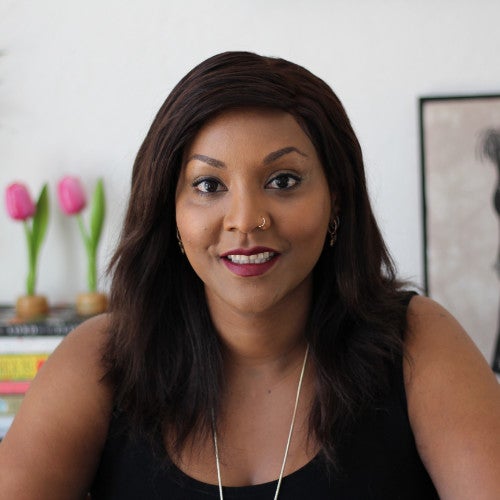
Kenyan-born Wambui Waiganjo (EMBA ’20) is an M.D. turned management consultant who leads strategic projects from planning to implementation and review processes. In 2017, she left a senior associate position at McKinsey & Company and moved to Los Angeles for family reasons. She says she chose UCLA Anderson for her MBA because of UCLA’s globally recognized brand. “From my aunts in Kenya to my clients in the Middle East to the business people we Executive MBAs met during our International Business Residential in China, UCLA is recognized and highly rated,” says Waiganjo, enumerating a variety of distinctions: “Difficult to get into, rigorous program, proximate to Hollywood and Silicon Valley, basketball legacy — Kareem Abdul-Jabbar and John Wooden!”
Q: Why did you apply to Anderson when you did?
Settling into a new country has a radical way of forcing self-reflection by cutting old safety nets. So there I was, face to face with the challenge of establishing myself, and a clean slate to forge a new career path. I had gotten as far as I had as a result of my leadership accomplishments, strong work ethic, readiness to roll up my sleeves and a wide range of work experiences. But I knew I had put off my master’s for too long. I had not invested in acquiring the core skills and knowledge required of a business leader.
I keep in mind what former president of Liberia Ellen Johnson Sirleaf said: “If your dreams do not scare you, they are not big enough.” Dreaming big, I fleshed out my career goals in a McKinsey-style 10-slide deck that plots the ambitious path to the C-suite of a Fortune 500 company. The time factor in this slide specifically triggered my urgency to refresh my leadership foundations, close gaps in my marketing and finance acumen, build networks and reinvent myself.
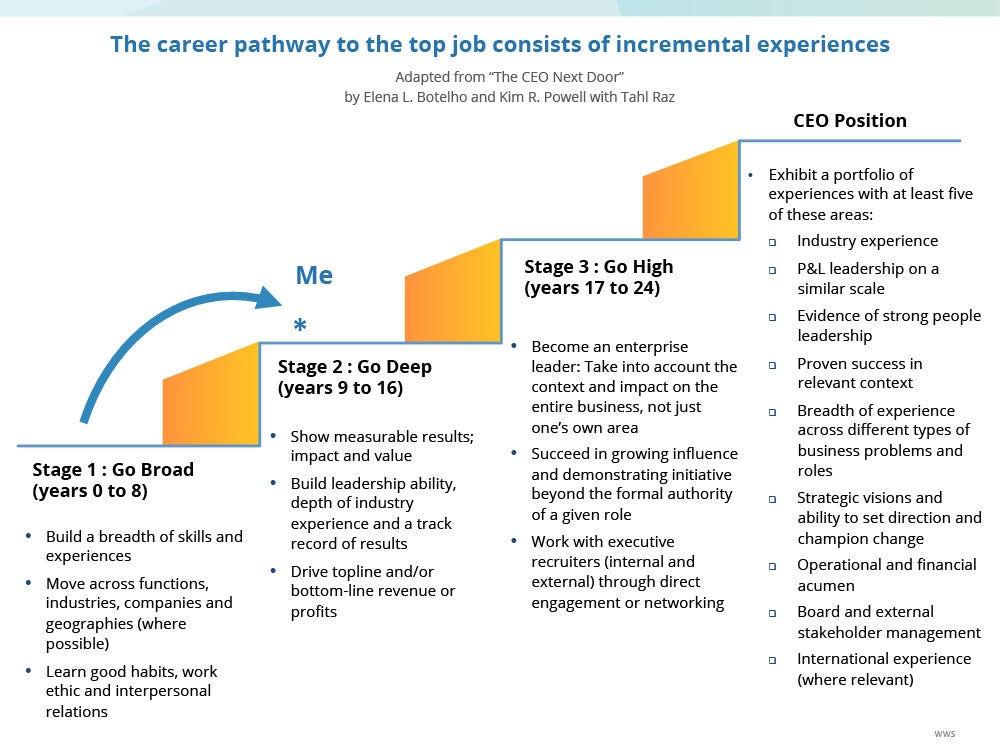
Q: What is your favorite thing about Anderson’s culture?
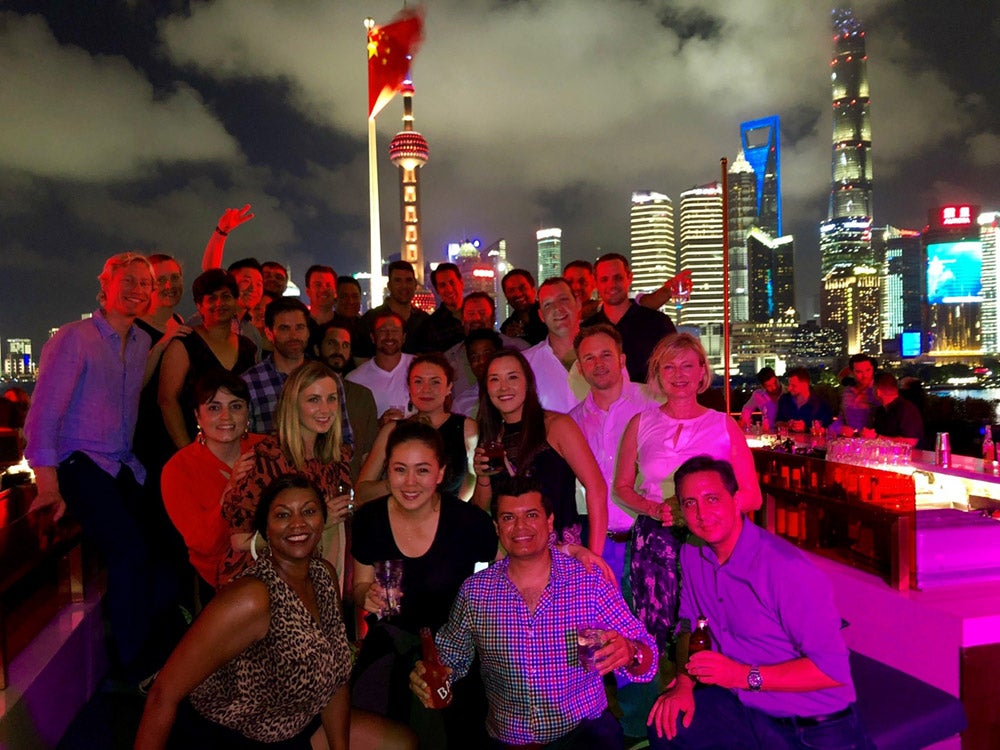
Waiganjo (front row, far left) traveled with other UCLA Anderson Executive MBA students to China for the International Business Residency
The way the school creates a family. Adjusting to becoming self-sufficient in a new country was a real shift. The EMBA program constantly emphasizes network among the outstanding merits of the program. And in my one year and three months at Anderson, I can, without fear of contradiction, say that my classmates are my greatest gift from the program. In our cohort a lot of life is happening: babies are born, jobs are won and lost, family members pass on, weddings are planned, existential crises and health threats occur, businesses are launched… And we still need to deliver on all our academic requirements. We know each other’s potential so the standard we hold for each other is high. But we are simultaneously compassionate because we know each other’s predispositions.
Q: Did you meet any Anderson students or alumni before you applied?
Yes, I attended the women’s luncheon for prospective students hosted by the EMBA program. Three women stood out for me:
- A judge who, through the program, conquered her fear of finance and transitioned into financial litigation after graduation;
- A middle manager in the cosmetics industry who got promoted into the furniture retail industry, accomplishing a career transition and promotion in one sweep;
- A prospective student who built a successful company that had achieved rapid growth she wasn’t prepared for.
This combination of overcoming challenges, reinventing yourself and being prepared for the next was inspiring at the time and is still motivational.
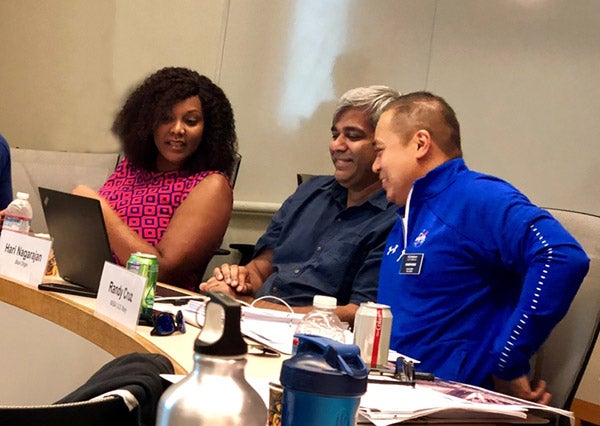
Waiganjo and EMBA Class of 2020 classmates Hari Nagarajan and Randy Cruz discussed brand management
Q: How are you combining your areas of professional expertise in medicine and consulting?
Medical training is a rigorous induction to an exclusive club. Thus, I will always be fluent in health care broadly, requiring a refresh where specifics matter. As a McKinsey consultant, I was exposed to more than health care by serving state governments, private sector corporations and social sector organizations across six industries and five functional areas in Africa, Europe, Middle East and the USA. Being a client counselor cross-functionally in various industries exercised new muscles for problem solving, analytic rigor and communication. The doctor in me still requires a strict evidence-based approach and the management consultant in me recognizes that an analytic framework alone does not move the needle; strategy needs creativity. I am also leaning on doctors-turned-strategy-and-operations-executives who have taken this path into different industries. Two of my Anderson finance professors charted a similar journey.
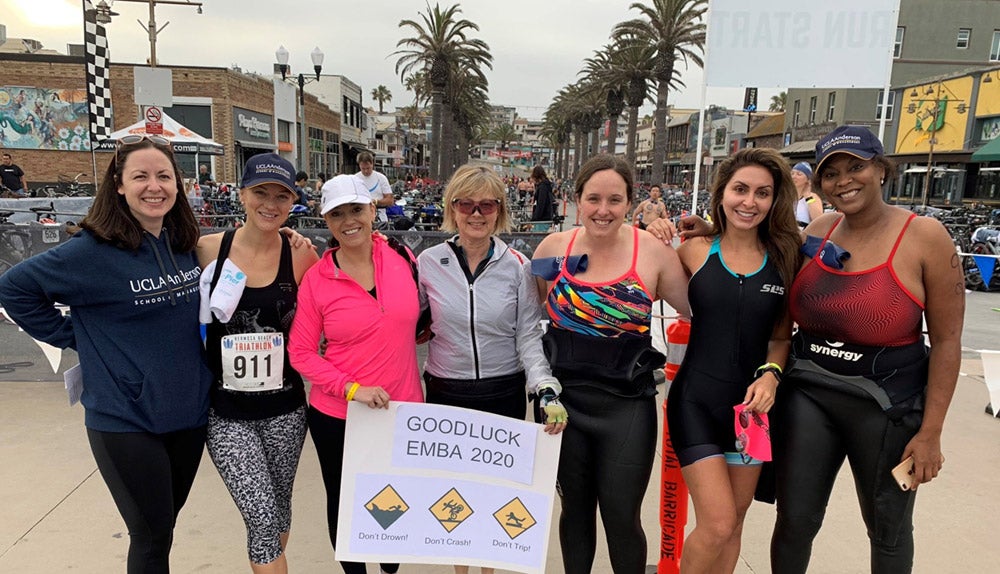
Waiganjo (far right) and women from her EMBA Class of 2020 cohort completed a triathlon in 2019
Q: Are there specific problems in the U.S. or your country or the wider world you hope to help solve by acquiring greater business acumen?
Despite its shortcomings, capitalism has been an efficient driver of innovation that has pushed humanity forward, yet now we are seeing the largest disparity of wealth and income globally, compounded by formidable threats to humanity — namely, climate change and cancer. I believe the solutions we need will come from within the business world, from business leaders who relentlessly focus on creating value and generating positive impact on the world.
Q: What are your thoughts on the U.S. celebration of Black History Month, or Women’s History Month, for that matter? What do these heritage months mean to you as a Kenyan living in North America?
I appreciate Black History Month, and congratulate America for it. I wish it was global, or at least in all African countries and everywhere the African diaspora live. Maybe if we were deliberate in reflecting on our past simultaneously, African countries would feel the pressure and complete the postcolonial project that has held us back all these years, and black people in Brazil, Haiti, Colombia, France, Venezuela, Jamaica, the U.K., etc. would find there are resources and unity in our shared history. In my mind, that would turn the key on the most powerful socioeconomic engine missing in the world today.
At Anderson, the women Executive MBAs (or WEMBAs, as we call ourselves) shared articles and had discussions during Women’s History Month. It is a powerful way to mentor and inspire each other, plus it is a lot of fun. On International Women’s Day, we brought balloons and flowers to class for our colleagues as symbolic reminder that the work of gender equity belongs to all of us and is far from done.
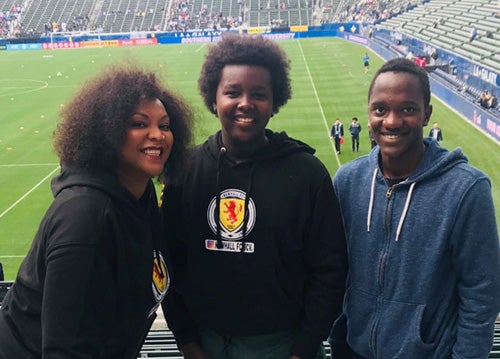
A proud soccer mom, Waiganjo took her son (center) and his teammate to see the L.A. Galaxy
Q: What do you like to do in Southern California when you're not working or studying?
Being a full-time soccer mom — driving the dream, side-line coaching, cheering and shouting rhetorical questions to the referee. I also love a long beach day and all things art; I go to the Broad and the Getty and live concerts. I watch a lot of film and, when I am lucky, I find friends to critique them with.
Q: How do you envision your career evolving post-MBA?
It is going to get more exciting and more demanding. I am ready.